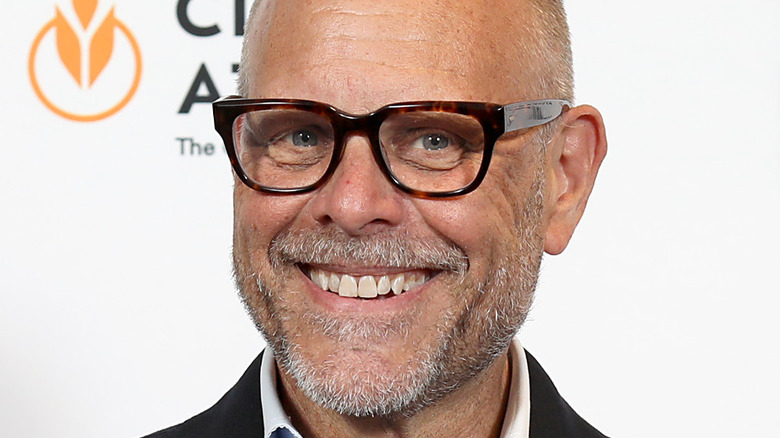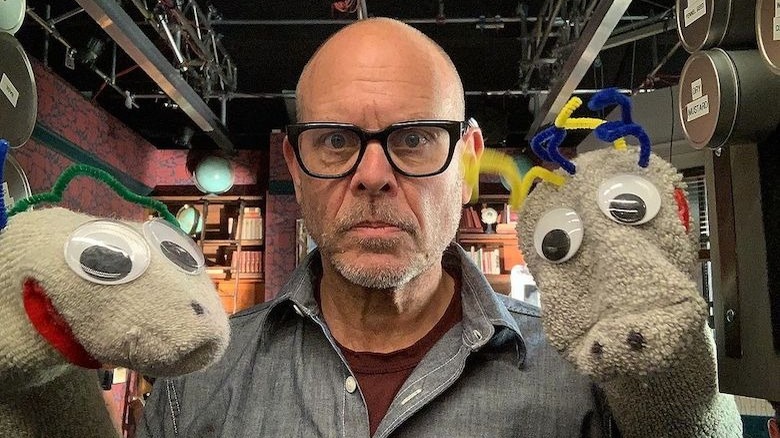Alton Brown's 3 Inspirations For Good Eats
If you've ever seen an episode of "Good Eats," you're well aware it's not your run-of-the-mill cooking show. And that's totally intentional. Helmed by chef Alton Brown, "Good Eats," ran on the Food Network for 14 seasons from 1999 to 2012. The quirky show was the brainchild of Brown who, along with his then-wife Deanna Collins, pitched the idea to the Food Network, where it became an unexpected hit. That was near the dawn of the food programming boom when, with a few notable exceptions like Jeff Smith and "Frugal Gourmet," most cooking shows were more like tutorials than fun-to-watch learning experiences.
The weird thing is Brown never planned to be a TV personality, let alone a chef. Instead, he pursued a successful career in filmmaking, but that may be exactly what eventually landed him on camera instead of behind it. A self-confessed fan of the circa 1980s cooking shows he watched as a college student, Brown noticed much of the late-20th-century food programming he watched had one thing in common: It was boring. With a background in video production, combined with knowledge from the New England Culinary Institute in Vermont, Brown set out to revamp food programming by inserting a bit of fun and humor into the format and drawing on three classic sources for inspiration.
The perfect trifecta
"I wrote down Julia Child, Monty Python, Mr. Wizard and thought if I could put those three things together, that would be fun," Brown told NPR in 2011. With the unlikely trio of characters as inspiration, Brown and his first wife, DeAnna Collins, began brainstorming ideas. Their goal was to create a show that would showcase Brown's quirky sense of humor (Monty Python) as he narrated a cooking lesson (Julia Child), with just a touch of science (Mr. Wizard) thrown into the mix. The result was the pilot episode of "Good Eats." The first episode, "Steak Your Claim," premiered on July 7, 1999. In 2018, Brown revisited that first show — in all its campy quirkiness — during an episode of "Good Eats: Reloaded," presenting an interesting peek into the show's evolution, but one thing remained constant: The tongue-in-cheek humor that made it fun to watch.
The series was a lot of fun to produce, too. Ideas for shows in the early days often stemmed from random thoughts running through Brown's mind. "One day, I was thinking to myself, 'Why don't we bake our own crackers? Oh, because Keebler elves do,'" he told Food Network Magazine. That led to a whole episode about making crackers, complete with elfen helpers (costumed members of the production staff) in the kitchen.

